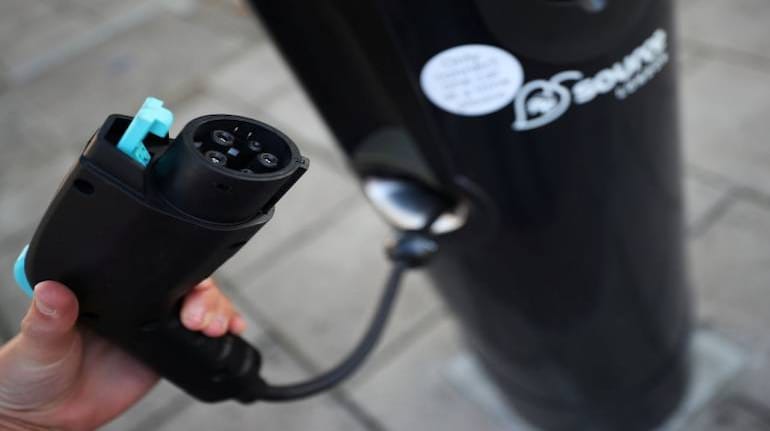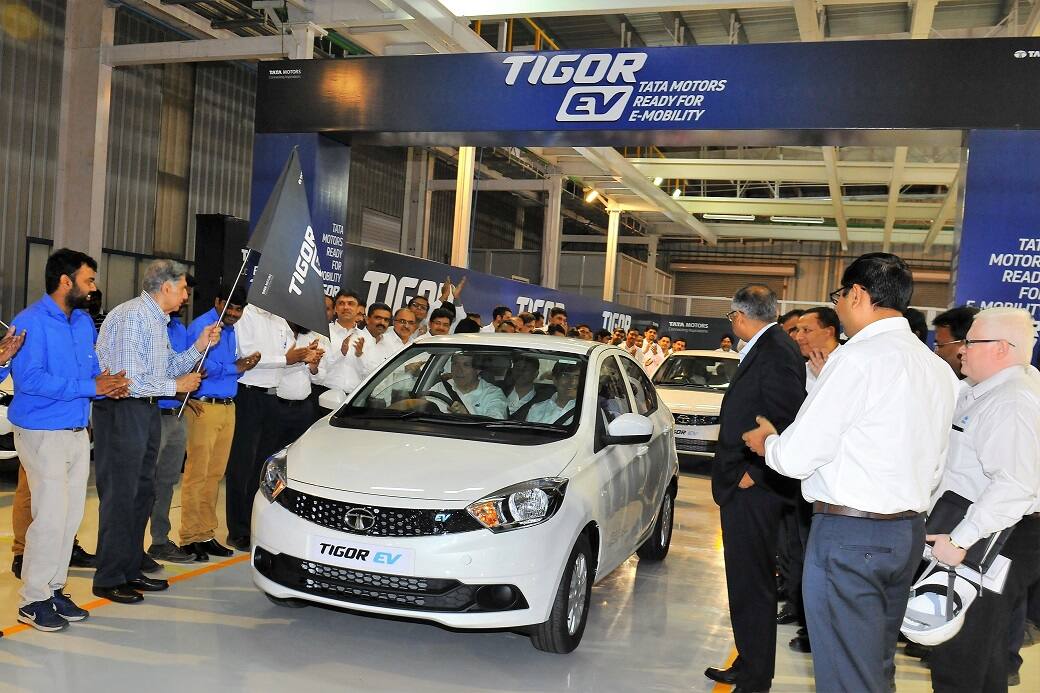



Manufacturing of batteries is one of the options available for the Tata Group to play a larger role in the government’s ambitious push towards 100 percent e-mobility.
While Tata Motors has already developed a range of vehicles – mini trucks, buses, mini buses and cars – that run on battery electric technology, question still remains on the localization of key components of battery-operated vehicles.
Speaking to Moneycontrol, AK Jindal, Head, Electric Vehicles & Defence Vehicles, Commercial Vehicle Engineering, Tata Motors, said: "We are open and looking at various options to see what backward integration can do on various things. This question (about getting into battery manufacturing) is very much there on the table. And we will take the appropriate decision".
Tata Group is already engaged in making automotive and inverter batteries through a joint venture company running under the umbrella entity Tata Autocomp Systems.
Suzuki, Denso and Toshiba have started work on a battery pack manufacturing plant in Gujarat that will start production in 2020. Companies, however, are seeking clarity and stability in policy for electric vehicles to facilitate investments in the sector.
“For anybody to invest you need to have a very stable policy. So once there is a stable policy towards electrification definitely we will look into all the aspects of localization, setting up facilities to make the components in India”, added Jindal.
Tata Motors rolled out its first commercial electric car Tigor EV under a contract to supply 250 of such sedans to a government-owned company EESL. These cars will be made at its Gujarat plant which also makes the mini car Nano. The Tigor EV is a stepping stone for the group for a larger role future in the electric vehicle space and this includes entering manufacturing of components such as batteries.
 Tigor EV
Tigor EVSpeaking to Moneycontrol earlier Guenter Butschek, Managing Director, Tata Motors said, “Subject to discussions and decisions. That’s something which can be discussed within Tata Sons but our focus right now is to make the Tigor electric happen and later we can see how to further develop this."
Batteries are the single-most important part in an electric vehicle comprising 35-40 percent of the cost of the vehicle. Presently, batteries, lithium-ion, are imported from China which has emerged as the battery supplier hub of the world.
In India, while there are not too many options for buying personal electric vehicles as only Mahindra & Mahindra makes EVs in India, the push from the central government has enticed several state governments to launch battery electric buses used for public transport.
“Almost every state transport undertaking is talking about electrification encouraged by the push from MORTH and new FAME scheme. We have done trials at 5-6 places and they have experienced the electric buses. In short, the upturn is very strong and everybody is keen on getting into the electrification drive. Initially, the number will be small but the transition to electric from diesel mobility will be quite fast”, added Jindal.

Discover the latest Business News, Sensex, and Nifty updates. Obtain Personal Finance insights, tax queries, and expert opinions on Moneycontrol or download the Moneycontrol App to stay updated!
Find the best of Al News in one place, specially curated for you every weekend.
Stay on top of the latest tech trends and biggest startup news.